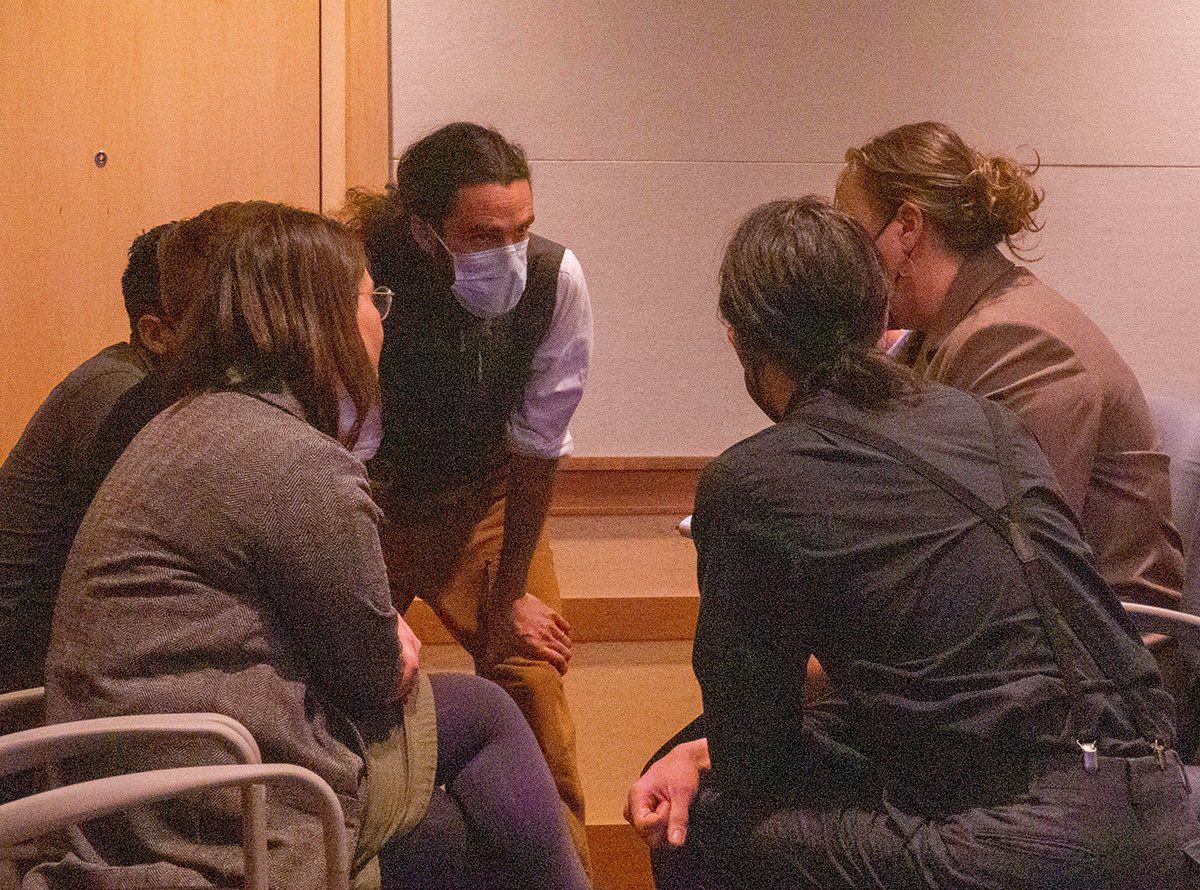A jury in New Hampshire found three Mainers guilty of trespassing this week for a 2019 protest where they temporarily blocked a train heading to New England’s last coal-fired power plant.
Jay O’Hara and Daniel Flynn of Portland and Johnny Sanchez of Orono were found guilty of both criminal and railroad trespass. Sanchez was found not guilty of resisting arrest.
The trial also involved two Vermont activists: Dana Dwinell-Yardley was found guilty on the same trespass charges while Emma Schoenberg was acquitted.
The defendants, who are affiliated with the No Coal No Gas campaign, sought to make the case that they were legally justified by the harms of climate change in flagging down and then blocking the train, which carried planet-warming coal across a railroad bridge in Hooksett, N.H.
The protesters flagged down and then stood in the way of a train carrying coal across a railroad bridge in Hooksett, N.H. The train was on its way to the region’s last coal plant, Merrimack Station, in the town of Bow.
Prosecutors and the protesters’ attorneys repeatedly traded objections during the trial about the relevance of climate change and coal use by Merrimack Station, the power plant the train was heading for in the town of Bow. It supplies roughly 1% of the region’s electricity and is slated to run at least through 2026.
"I and others were determined to do what we could to both physically stop that coal that was coming and also build a robust movement that was capable of working for the changes at the scale and urgency that is needed to address the climate crisis,” O’Hara, one of the Maine defendants, said in a statement after the verdict.
The campaign said in a release that the verdicts, while mixed, “are a reminder that business-as-usual for the fossil fuel industry is destroying our livable climate, while climate activists who seek to spark change are prosecuted for their acts of conscience.”
Activists have been arrested multiple times protesting Merrimack Station in recent years, including at a demonstration a few months before the train blockade that marked the largest environmental protest in New Hampshire in a generation.



